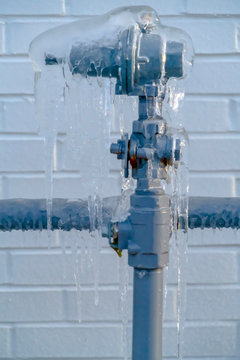Crucial Advice to Prevent Frozen Plumbing in Winter: Specialist Guidance
Crucial Advice to Prevent Frozen Plumbing in Winter: Specialist Guidance
Blog Article
How do you actually feel in regards to How to Prevent Your Pipes From Freezing?

Winter can ruin your pipes, particularly by freezing pipelines. Right here's just how to prevent it from occurring and what to do if it does.
Intro
As temperatures drop, the danger of frozen pipes increases, potentially causing expensive repair services and water damage. Comprehending exactly how to avoid frozen pipes is crucial for homeowners in cold environments.
Avoidance Tips
Insulating vulnerable pipelines
Cover pipelines in insulation sleeves or utilize heat tape to shield them from freezing temperatures. Focus on pipelines in unheated or exterior locations of the home.
Heating strategies
Maintain indoor areas properly heated up, particularly locations with pipes. Open up cupboard doors to allow cozy air to flow around pipes under sinks.
Just how to determine frozen pipes
Seek reduced water flow from faucets, uncommon odors or sounds from pipelines, and visible frost on revealed pipelines.
Long-Term Solutions
Structural changes
Think about rerouting pipes far from exterior wall surfaces or unheated areas. Include extra insulation to attic rooms, basements, and crawl spaces.
Updating insulation
Invest in top notch insulation for pipes, attic rooms, and walls. Appropriate insulation aids maintain constant temperatures and decreases the threat of frozen pipes.
Securing Outdoor Plumbing
Yard tubes and outdoor faucets
Detach and drain pipes yard hoses before wintertime. Mount frost-proof faucets or cover outdoor faucets with insulated caps.
Comprehending Icy Pipelines
What triggers pipelines to ice up?
Pipelines ice up when revealed to temperature levels listed below 32 ° F (0 ° C) for expanded durations. As water inside the pipelines ices up, it broadens, putting pressure on the pipe walls and potentially causing them to break.
Threats and problems
Icy pipes can lead to water supply disruptions, home damage, and pricey fixings. Burst pipes can flooding homes and trigger comprehensive structural damages.
Signs of Frozen Water Lines
Determining frozen pipelines early can avoid them from bursting.
What to Do If Your Pipes Freeze
Immediate actions to take
If you suspect frozen pipelines, keep faucets open up to soothe stress as the ice melts. Use a hairdryer or towels soaked in warm water to thaw pipelines slowly.
Verdict
Avoiding icy pipes needs aggressive measures and quick feedbacks. By understanding the causes, indications, and safety nets, property owners can secure their pipes throughout winter.
5 Ways to Prevent Frozen Pipes
Drain Outdoor Faucets and Disconnect Hoses
First, close the shut-off valve that controls the flow of water in the pipe to your outdoor faucet. Then, head outside to disconnect and drain your hose and open the outdoor faucet to allow the water to completely drain out of the line. Turn off the faucet when done. Finally, head back to the shut-off valve and drain the remaining water inside the pipe into a bucket or container. Additionally, if you have a home irrigation system, you should consider hiring an expert to clear the system of water each year.
Insulate Pipes
One of the best and most cost-effective methods for preventing frozen water pipes is to wrap your pipes with insulation. This is especially important for areas in your home that aren’t exposed to heat, such as an attic. We suggest using foam sleeves, which can typically be found at your local hardware store.
Keep Heat Running at 65
Your pipes are located inside your walls, and the temperature there is much colder than the rest of the house. To prevent your pipes from freezing, The Insurance Information Institute suggests that you keep your home heated to at least 65 degrees, even when traveling. You may want to invest in smart devices that can keep an eye on the temperature in your home while you’re away.
Leave Water Dripping
Moving water — even a small trickle — can prevent ice from forming inside your pipes. When freezing temps are imminent, start a drip of water from all faucets that serve exposed pipes. Leaving a few faucets running will also help relieve pressure inside the pipes and help prevent a rupture if the water inside freezes.
Open Cupboard Doors
Warm your kitchen and bathroom pipes by opening cupboards and vanities. You should also leave your interior doors ajar to help warm air circulate evenly throughout your home.

I discovered that article about Preventing and dealing with frozen pipes while doing a search on the search engines. Please take a moment to distribute this post if you enjoyed reading it. I enjoy your readership.
Click Here Report this page